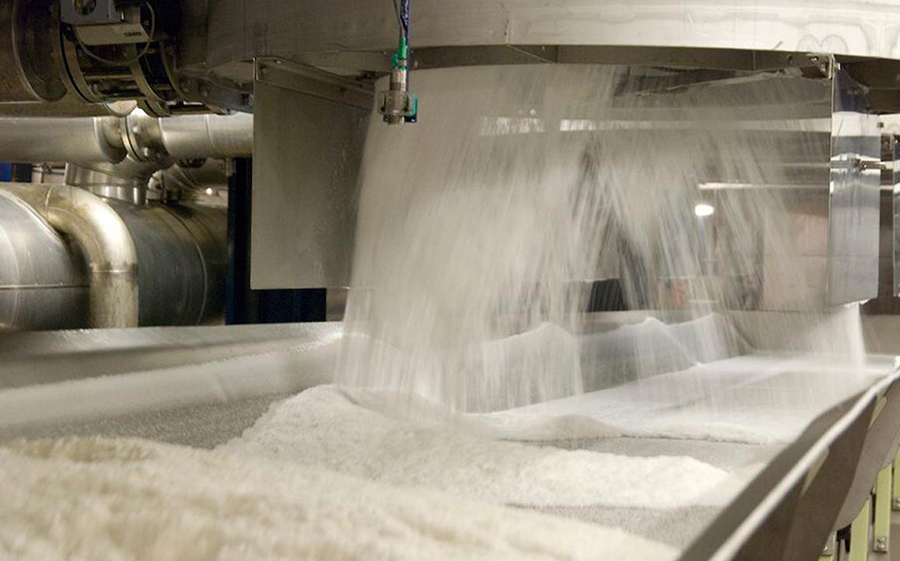*
There seems to be fresh hopes, as indications have emerged that Nigeria will stop the importation of sugar in 2022.
This development will improve food production in the country and further reduced unemployment rate in the country.
iBrandTV gathered that the value of exports of commodity group 17 “Sugars and sugar confectionery” from Nigeria totalled $1.58 million in 2019. Sales of commodity group 17 from Nigeria decreased by 19 percent in value terms compared to 2018.
Exports of commodity group 17 “Sugars and sugar confectionery” decreased by $372 thousand (cumulative exports of commodity group 17 from Nigeria amounted $1.95 million in 2018)
Exports of commodity group 17 “Sugars and sugar confectionery” amounted to 0.002% of total exports from Nigeria (cumulative merchandise exports from Nigeria totalled $ 53 billion in 2019). The share of commodity group 17 in total exports from Nigeria decreased by 0 p.p. compared to 2018 (it was 0.003% in 2018 and cumulative exports from Nigeria were equal to $ 62 billion).
What the Nigeria’s govt said
Nigeria’s Minister of Agriculture and Rural Development, Mohammad Nanono, stated that government is on top of the game with effort put in place to galvanize the sector as there is massive production of rice despite smuggling activities going on in some parts of the country traceable to neighboring countries who have become dumping grounds for rice brought and dumped by Thailand and others.
Speaking at opening ceremony of a 2-day Feed the Future Summit 2021 with theme, ‘Post COVID-19: A Repaired Food System, Pathway to a Revived Economy,” in Abuja, he noted that in Kano alone there are over 44 rice mills and farmers in other states are deep in rice cultivation, processing and marketing, which he also noted that there are agribusiness activities going on at a massive scale in Katsina State but not organized, and that all are boost the economy even though they are not officially recorded.
He said: “We need stakeholders in the agricultural sector to synergize and this is what we want, and unless we create that relationship the poverty we are talking about will not go out.
“When we produce enough food and the people go and sleep with hunger because there is no money the reason being they are not engaged in gainful employment, and that is our biggest challenge.
“What have we done? We have done a lot and we are engaging the international community on that ground. It is very crucial if we are not doing nothing about this large army of people who are not employed.
“People have taken upon themselves to invest, and this is the effort we made and there are others.
“For example, I am optimistic that in the next two years we don’t need to import sugar into this country because of the amount of investment made and the funds that are coming within the next two years we will meet the requirement of 1.5 million metric tonnes annually; the Dangote Group, Flour Mill Group, Bua Group will produce sugar that we need in this country.
On textile industry
However, the Minister expressed dismay with the comatose textile industry which had remained in the doldrums over decades while recalling the hay days of the industry and how Nigeria was the largest market for textile business in the world, but lost its glory in 1986 and as a result over 145 textile mills were lost which was the largest employer of labour.
He added that for unemployment to be tackled the textile industry is to be resuscitated.
He also stated that “we need to grow what we eat. We are not against the importation of rice but dumping of rice. Togo, Benin don’t produce rice but rice came from Thailand, China, India, and dovetailed into Nigerian market.
“I tell you, four states in Nigeria can produce rice we can eat. When we took up that policy today we produce the rice that we eat.
“In where I come from there are no less than 40 rice milling plants with capacity of 200,000 tonnes per day and employed people.”
According to him disclosed that the Federal Government will kick-start its agricultural mechanisation programme in the first quarter of 2022.
He maintained that this will lead to the essence of food and boost farmers’ productivity nutrition security, jobs creation, economic development, and others.
He added that this and other laudable programmes of the ministry were in line with the administration’s focus and commitment to diversifying the economy, through agriculture.
UK support for Nigeria’s industrialisation
The United Kingdom, UK, Acting High Commissioner to Nigeria, Gill Atkinson, acknowledged that UK has been supportive to Nigeria’s agriculture and agribusiness over the years.
Atkison mentioned that private companies as key players in the future of agriculture are remain critical partners in promoting food and nutrition.
Atkinson also pointed tha the impact of the COVID- 19 pandemic had led to rising cost of food and inflation.

